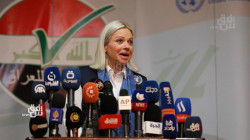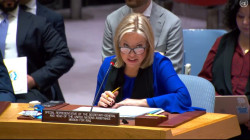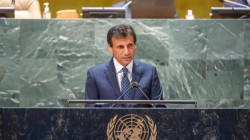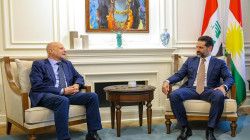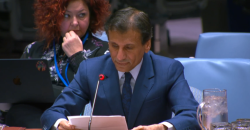Security Council members support ending UNAMI
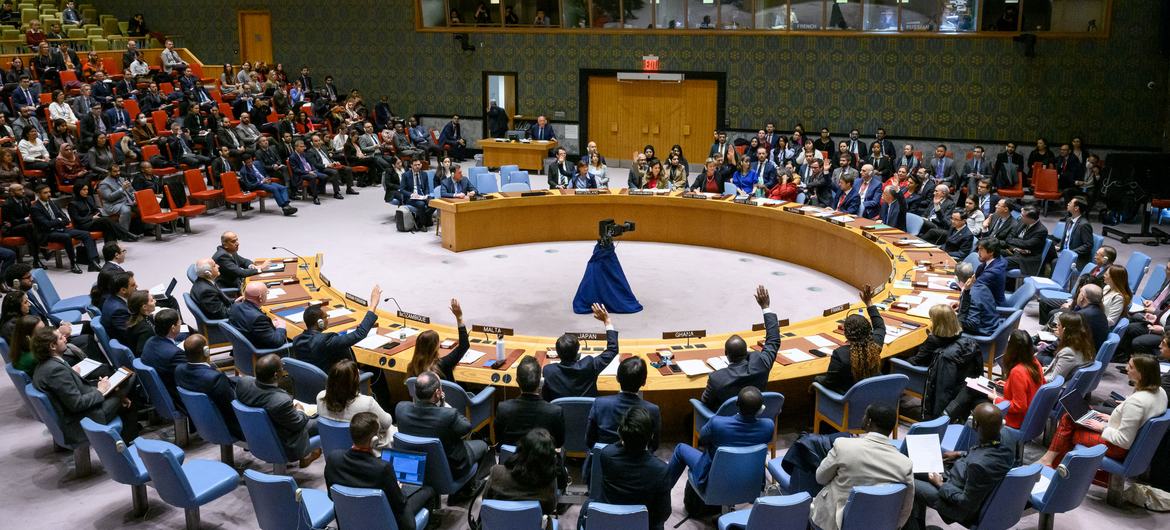
Shafaq News / Several members of the United Nations Security Council, including Russia and China, endorsed Baghdad's request on Thursday to terminate the United Nations Assistance Mission for Iraq (UNAMI) by next year. However, Washington did not immediately support this move.
Iraq's Deputy Permanent Representative to the United Nations Abbas Kadhim Al-Fatlawi reiterated his country's request before the Council to conclude UNAMI's political mission, which has been ongoing for over 20 years, by the end of 2025, stating that "the mission has achieved its objectives."
Russia's UN Ambassador Vassily Nebenzia supported this perspective, stating that "Iraqis are ready to take responsibility for their country's political future." He added that "remaining issues should not become a pretext for the indefinite continuation of the UN mission in the country."
China's Deputy UN Ambassador Geng Shuang highlighted that during the annual renewal of the mission's mandate, which expires at the end of May, the Council should "propose a plan for ensuring a gradual withdrawal and smooth transition to a final withdrawal."
Given that UN missions require host state consent to operate, Britain and France also expressed their support for transitioning Iraq-UN partnership responsibilities.
The position of the United States was more ambiguous. Ambassador Linda Thomas-Greenfield stated that the UN mission still has "important work to do" and did not address Baghdad's request.
Thomas-Greenfield emphasized the mission's pivotal role in many important political issues, such as supporting election organization and enhancing human rights, although Iraq has clearly requested a more direct focus on economic matters.
In evaluating the request, German diplomat Volker Perthes stated in March that the United Nations Assistance Mission for Iraq, which had more than 700 staff until late 2023, "appears too large in its current form."
Perthes urged the mission to "begin transferring its tasks to national institutions and the UN country team in a responsible, organized, and gradual manner within an agreed timeframe."
On May 10, 2024, Iraqi media outlets released the text of Prime Minister Mohammed Shia Al-Sudani's formal request to United Nations Secretary-General António Guterres to conclude the UNAMI operations permanently.
Al-Sudani emphasized that "the justifications for the presence of a political mission in Iraq are no longer applicable, especially after over 20 years of democratic transition and overcoming significant and diverse challenges," affirming that the country wants to deepen cooperation with other UN organizations.
UNAMI: A brief overview
Established in 2003 under United Nations Security Council Resolution 1500, at the request of the Iraqi government, the UN Assistance Mission for Iraq (UNAMI) role expanded significantly in 2007 under Resolution 1770.
At the outset of its operations in Iraq, the Mission faced a tragic incident in August 2003 when a terrorist bombing targeted its headquarters at Al-Qanat Hotel in Baghdad.
The attack destroyed the hotel, claiming the lives of 23 staff members, including the Special Representative of the Secretary-General for the United Nations, Sergio Vieira de Mello.
The Mission, headquartered in Baghdad's heavily fortified Green Zone, is also tasked with collaborating with government partners and civil society to coordinate the humanitarian and development initiatives of UN Agencies, Funds, and Programmes.
While UNAMI doesn't directly implement humanitarian and development programs, it amplifies the importance of these issues in Iraq. It facilitates connections between Iraqi partners, including the Government and civil society organizations, and the technical expertise offered by the UN entities in Iraq. The UN Iraq explained.
Multiple challenges
Iraq is witnessing a "rise," but corruption and "factionalism" are "major hurdles," the Special Representative of the UN Secretary-General in Iraq, Jeanine Hennis-Plasschaert, said in a briefing before the United Nations Security Council on Thursday.
"We are, so to speak, witnessing an Iraq on the rise," she added. "Particularly in the areas of service provision and construction."
"Corruption, factionalism, impunity, undue interference, and armed actors operating outside state control – while the Government of Iraq is tackling these scourges, they still represent major hurdles to be overcome," she continued. "Dealing with the legacy of the past and the many challenges of the present will take time."
UNAMI said "Iraq's horizon is replete with opportunities" as the country is also "teeming with people who are ready and willing to seize them."
Without a doubt, the imprint Iraq and its people have made on me, will be a lasting one."
